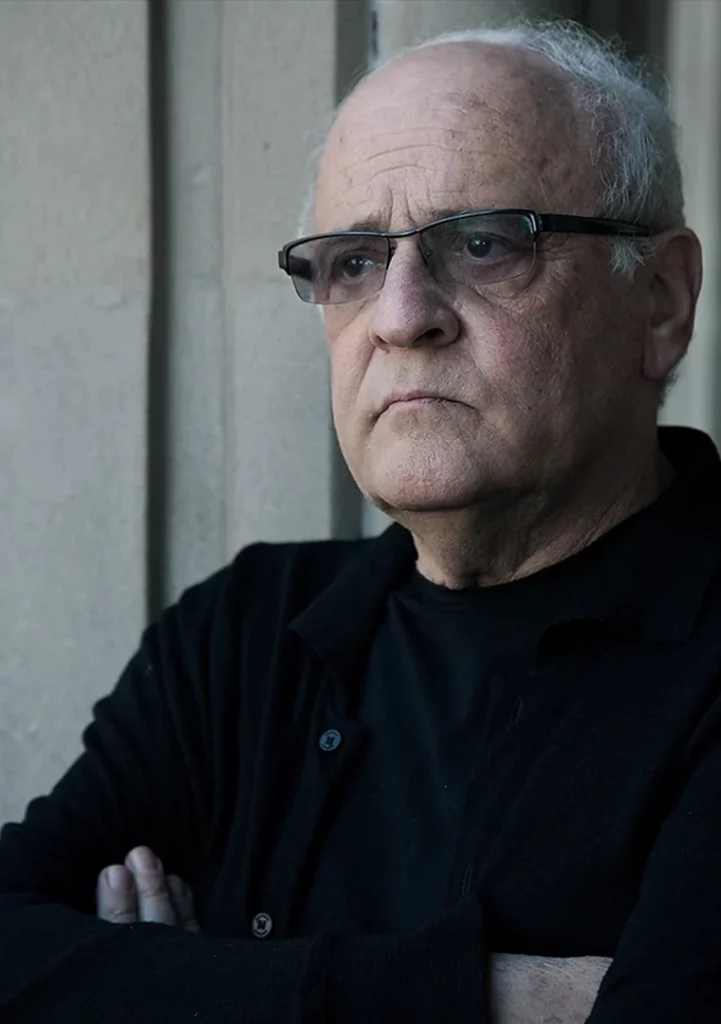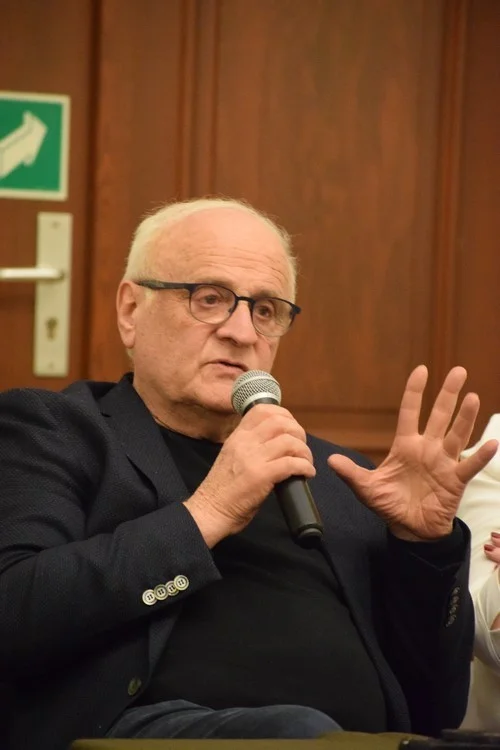
The question whether to leave Poland or not was discussed several times during my childhood. I lived in the small town of Strzegom, 56 kilometres from Wrocław, where nearly 200 Jewish families had settled after the war. There was a Jewish primary school, a nursery for small children, a kindergarten, a health centre, and work cooperatives for carpentry.
In front of our house, at 31 Dzierżyńskiego street, I could hear discussions each night between friends of the family about whether or not to leave Poland, when and where to go. These discussions intensified after the Kielce pogrom in 1946, when 42 Jews were murdered by local Poles.
My stepfather applied for passports to leave Poland several times. My mother, Mery Bord, started crying when she found out, fearing that she would never see her brothers again. My stepfather returned the passports.
My father, Natan Sirota, had been a soldier in the Russian army. He was killed by the Germans near Kharkov in Russia in 1941.
As a child, my mother told me stories about leaving the local defence office, where she worked as a secretary, in panic when the Germans approached the outskirts of the city. She grabbed me, a one-year-old child at the time, in her arms and managed to jump on the last train heading towards the Ural Mountains in the Soviet Union. That’s how we survived the Holocaust.
In the Soviet Union, she met Grzegorz Kantor, a non-commissioned officer in the Polish Army. His whole family had been murdered by the Germans. Grzegorz had been taken a prisoner of war and sent to Germany for hard labour. He escaped to Russia in fear of the Germans discovering that he was a Jew. He did not want to stay in Russia after the war, that is how we ended up in Poland again.
My life preceding the antisemitic campaign 1968 was good. In 28 years, I was only once called a “dirty Jew” once by a boy in my class. I gave him a good beating while the rest of my class watched and took my side.
Back then my parents were alive. We had wonderful Jewish summer camps, I was the head instructor at several of them. In Strzegom there was a beautiful post-German swimming pool and allotment gardens where cherries, gooseberries and currants grew. I remember their taste to this day. I worked as a lecturer at the University of Opole, and served as the head of the Department of Culture at the local Municipal Office. I’ve profiled this time in my movie “Where Currants Grow”, which was received wonderful reviews.
My whole life changed during Poland’s antisemitic campaign 1968. My mother died of a heart attack after being thrown out of work. She could not stand the brutal campaign and the thuggish atmosphere targeting Jews. My mother was just 48 years old when she passed away.
I was thrown out from university in June 1968. I went to Opole to bid farewell to my city. No one dared to approach me. Only the university dean, Professor Eugeniusz Konik, embraced me and said: “Mr Leszek, go to Canada, you will certainly do well there.”
I applied for a visa to leave Poland at the Embassy of Sweden. The visa was refused. In December 1968, Sweden opened their borders. I arrived in Stockholm on 10 January 1969 with my wife Inka. At that time there were only 10 of us, newly arrived Jews from Poland, in Stockholm.
While living in Sweden I settled my score with Communist Poland by doing broadcasts on Radio Free Europe. Jan Nowak Jeziorański, a legend of the Polish anti-communist movement, visited Stockholm to offer me a permanent radio job. I could not accept the offer because my wife’s parents had stayed in Poland. And so, 54 years passed. In 1996, the President of Poland, Aleksander Kwaśniewski, awarded me the Knight’s Cross of the Order of Merit for my work for free Poland.

Today, many of my friends travel with their children to Poland to show them the life of their childhood. I have seen pictures of my old house trough Google maps: it still has scratched facades and a lot of greenery, oak trees and blackcurrant bushes. I continue looking at the Strzegom of my childhood with a heavy heart and tears in my eyes.
Sweden took in several thousand Polish Jews in 1968. Our children and grandchildren no longer have to run to railway stations and flee from evil.
(Source: Forgotten Exodus Interview)